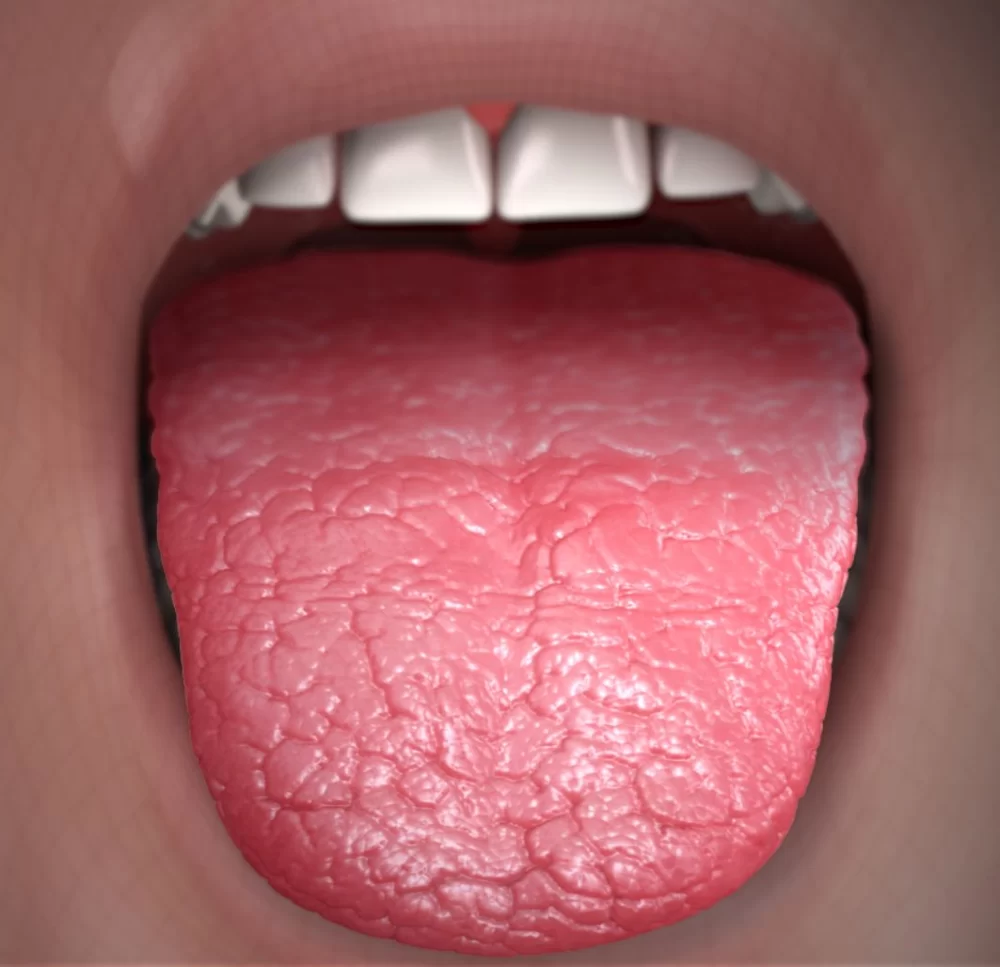
How to Recognize and Treat Dry Mouth Symptoms
- 1. Recognizing the Symptoms of Dry Mouth
- 2. Causes of Dry Mouth
- 3. Treatment Options for Dry Mouth
- 4. Prevention Tips for Dry Mouth
1. Recognizing the Symptoms of Dry Mouth
Dry mouth, also known as xerostomia, is a condition where there is not enough saliva to keep your mouth moist. It's more than just a nuisance—it can lead to complications like difficulty swallowing, speaking, and eating. Here are some common symptoms to help you recognize dry mouth:
1.1 A Sticky or Dry Feeling in Your Mouth
If you feel like your mouth is constantly dry or sticky, this is a key sign of dry mouth. This sensation is often noticeable when you wake up in the morning, and it can persist throughout the day.
1.2 Difficulty Speaking or Swallowing
Dry mouth can make it harder to speak clearly or swallow food and liquids. The lack of saliva makes it difficult to break down food properly, leading to discomfort when eating or talking.
1.3 Bad Breath
When there isn’t enough saliva to wash away food particles and bacteria, bad breath (halitosis) is a common symptom. Persistent bad breath, especially if you’ve recently brushed your teeth, is often a sign of dry mouth.
1.4 Dry, Cracked Lips
Another noticeable symptom of dry mouth is chapped or cracked lips. Without enough moisture from saliva, your lips can become dry, cracked, or sore, especially in the corners of your mouth.
2. Causes of Dry Mouth
There are several factors that can contribute to dry mouth. Understanding the causes can help in treating and managing the condition effectively. Some of the common causes include:
2.1 Medications
Many medications, such as antihistamines, decongestants, antidepressants, and painkillers, can reduce saliva production. If you’re taking any of these drugs, dry mouth might be a side effect.
2.2 Health Conditions
Certain health conditions like diabetes, Parkinson's disease, or Sjögren's syndrome can impair your body’s ability to produce saliva. If you have any of these conditions, you might be more prone to experiencing dry mouth.
2.3 Dehydration
Dehydration due to insufficient water intake, excessive sweating, or illnesses such as fever or vomiting can lead to dry mouth. Your body may not have enough fluid to produce saliva during these times.
2.4 Lifestyle Factors
Smoking or drinking alcohol can also contribute to dry mouth. Both habits can reduce saliva flow and irritate the tissues in the mouth, making the symptoms worse.
3. Treatment Options for Dry Mouth
While dry mouth can be uncomfortable, there are several ways to manage and treat it effectively. Here are some treatment options:
3.1 Saliva Substitutes
One of the most common ways to treat dry mouth is by using saliva substitutes. These products, such as gels, sprays, or mouthwashes, can help moisten your mouth and provide temporary relief from the symptoms.
3.2 Prescription Medications
If over-the-counter remedies are not effective, your doctor may prescribe medications like pilocarpine (Salagen) or cevimeline (Evoxac). These medications help stimulate your salivary glands to produce more saliva.
3.3 Drink Plenty of Water
Staying hydrated is key in managing dry mouth. Drinking water throughout the day can help keep your mouth moist and flush out bacteria that can cause bad breath. Sipping water regularly can be a simple, yet effective remedy for dry mouth.
3.4 Sugar-Free Gum and Lozenges
Chewing sugar-free gum or sucking on sugar-free lozenges can help stimulate saliva production. Look for options that contain xylitol, which is known to promote saliva flow and reduce dry mouth symptoms.
4. Prevention Tips for Dry Mouth
While it’s important to know how to treat dry mouth, preventing it from occurring in the first place is even better. Here are some tips to keep dry mouth at bay:
4.1 Maintain Good Oral Hygiene
Brushing your teeth twice a day, flossing daily, and using an antimicrobial mouthwash can help reduce the buildup of bacteria and plaque, which can exacerbate dry mouth. Regular dental checkups are also important for maintaining oral health.
4.2 Avoid Tobacco and Alcohol
Avoid smoking and drinking alcohol, as both can contribute to dry mouth. Smoking, in particular, reduces saliva production, and alcohol can dehydrate your body, making the symptoms of dry mouth worse.
4.3 Use a Humidifier
If you live in a dry climate or are prone to dry mouth at night, consider using a humidifier in your bedroom. The added moisture in the air can help prevent your mouth from drying out while you sleep.







 Noll Family Dentistry4.0 (95 review)
Noll Family Dentistry4.0 (95 review) Dr. David R. Resch DDS0.0 (0 review)
Dr. David R. Resch DDS0.0 (0 review) Decatur Orthodontics5.0 (379 review)
Decatur Orthodontics5.0 (379 review) Reynolds, Clinton DDS5.0 (24 review)
Reynolds, Clinton DDS5.0 (24 review) Gentle Dental Rio Vista4.0 (152 review)
Gentle Dental Rio Vista4.0 (152 review) Little Big Smiles Pediatric Dentistry of Fort Myers5.0 (130 review)
Little Big Smiles Pediatric Dentistry of Fort Myers5.0 (130 review) The Importance of Oral Health Education During Pregnancy for a Healthy Pregnancy
The Importance of Oral Health Education During Pregnancy for a Healthy Pregnancy Best Tips for Brushing Your Teeth Properly for Healthy Gums: Essential Techniques for Oral Health
Best Tips for Brushing Your Teeth Properly for Healthy Gums: Essential Techniques for Oral Health Why Skipping Dental Checkups Can Lead to Bigger Oral Health Problems
Why Skipping Dental Checkups Can Lead to Bigger Oral Health Problems Advantages of Porcelain Dental Restorations
Advantages of Porcelain Dental Restorations How Can Diabetes Cause Tooth and Gum Problems? Preventing and Managing Oral Health Issues
How Can Diabetes Cause Tooth and Gum Problems? Preventing and Managing Oral Health Issues Healthy Habits for Promoting Good Oral Health and Hygiene: Tips for a Healthy Smile
Healthy Habits for Promoting Good Oral Health and Hygiene: Tips for a Healthy Smile